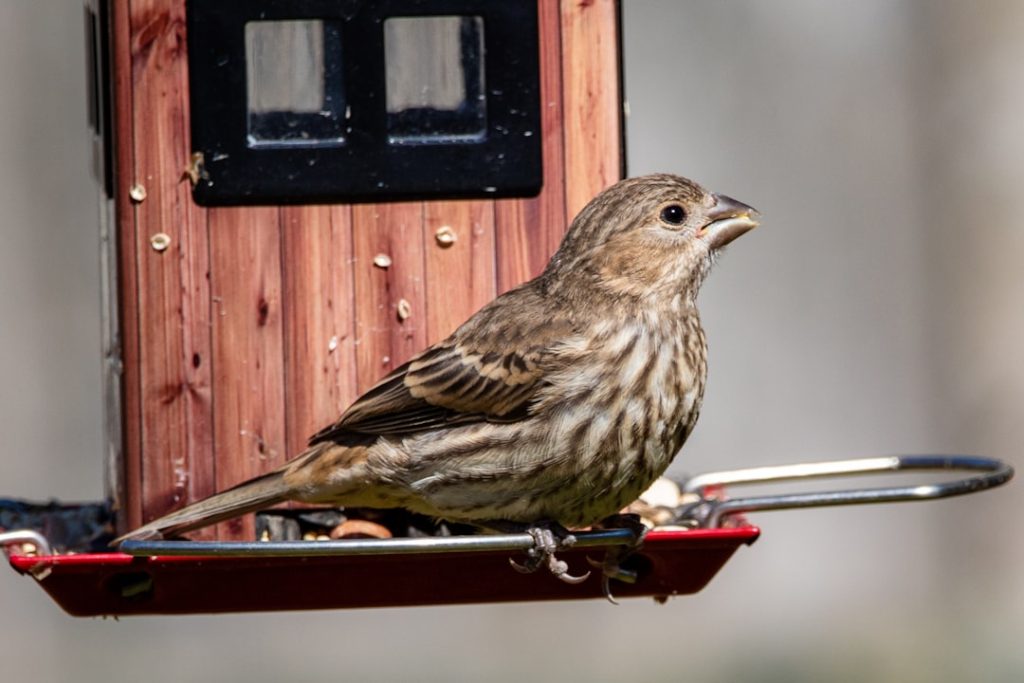When it comes to keeping chickens in an urban setting like Dunedin, FL, understanding the zoning regulations is essential. Zoning regulations are established to ensure land and building use aligns with the city’s development plan and protects community health, safety, and welfare. In Dunedin, FL, zoning regulations may vary by area or neighborhood, necessitating consultation with the local zoning department to determine if chicken keeping is permitted on a specific property.
Some areas of Dunedin, FL may allow chicken keeping under certain conditions, such as limits on the number of chickens, required distances between coops and neighboring properties, and property maintenance standards. Familiarization with these regulations is crucial to avoid legal issues. Additionally, some neighborhoods may have homeowners’ associations (HOAs) with their own rules regarding chicken keeping, which should also be reviewed.
By understanding and complying with Dunedin, FL zoning regulations, residents can enjoy keeping chickens without unnecessary complications or legal concerns.
Table of Contents
- 1 Calculating Space Requirements for Chickens
- 2 Considerations for Noise and Odor Control
- 3 Choosing the Right Breeds for Urban Settings
- 4 Coop and Run Design for Limited Space
- 5 Local Laws and Ordinances Regarding Chicken Keeping
- 6 Resources for Support and Information in Dunedin, FL
- 7 FAQs
- 7.1 What are the regulations for keeping chickens in Dunedin, FL?
- 7.2 Do I need a permit to keep chickens in Dunedin, FL?
- 7.3 What are the space requirements for keeping chickens in Dunedin, FL?
- 7.4 Are there any restrictions on keeping roosters in Dunedin, FL?
- 7.5 What are the benefits of keeping chickens in Dunedin, FL?
Key Takeaways
- Zoning regulations in Dunedin, FL dictate where chickens can be kept on residential properties
- Calculate space requirements for chickens based on the number of birds and their size
- Consider noise and odor control when keeping chickens in urban settings
- Choose chicken breeds that are well-suited for urban environments
- Design a coop and run that maximizes space in urban settings
- Familiarize yourself with local laws and ordinances regarding chicken keeping in Dunedin, FL
- Seek support and information from local resources when keeping chickens in Dunedin, FL
Calculating Space Requirements for Chickens
Space Requirements for Chickens
As a general rule of thumb, each standard-sized chicken should have at least 2-3 square feet of coop space and 8-10 square feet of outdoor run space. Bantam breeds can get by with slightly less space, while larger breeds may require more.
Considering Overall Space Availability
It’s important to consider not only the space requirements for individual chickens but also the overall space available on your property. In an urban setting, space may be limited, so careful planning is necessary to ensure that your chickens have enough room to move around comfortably.
Benefits of Ample Space
Additionally, providing ample space for your chickens can help prevent behavioral issues and reduce the risk of disease transmission. By calculating the space requirements for your chickens, you can create a healthy and comfortable environment for your flock while staying within the limits of your urban property.
Considerations for Noise and Odor Control

In an urban setting like Dunedin, FL, noise and odor control are important considerations when keeping chickens. While chickens are generally not as noisy as other types of livestock, they can still produce loud vocalizations, especially in the morning when they lay eggs. To minimize noise disturbances to your neighbors, consider placing the coop and run in an area of your property that is furthest away from neighboring homes.
Additionally, providing environmental enrichment and keeping your chickens well-fed can help reduce excessive vocalizations. Odor control is another important consideration when keeping chickens in an urban setting. Proper coop maintenance, including regular cleaning and waste management, is essential for controlling odors.
Using absorbent bedding materials such as straw or wood shavings can help absorb moisture and reduce odors. Additionally, incorporating a composting system for chicken waste can help manage odors while producing valuable fertilizer for your garden. By taking proactive measures to address noise and odor control, you can be a considerate neighbor while enjoying the benefits of keeping chickens in an urban environment.
Choosing the Right Breeds for Urban Settings
When it comes to keeping chickens in an urban setting like Dunedin, FL, choosing the right breeds is crucial for success. Some breeds are better suited for urban environments due to their temperament, noise level, and egg production. For example, breeds such as Australorp, Orpington, and Wyandotte are known for their calm and friendly disposition, making them ideal choices for urban chicken keeping.
Additionally, breeds that are known for being quieter, such as Silkies and Cochins, can help minimize noise disturbances to neighbors. Egg production is another important factor to consider when choosing breeds for urban settings. Breeds such as Leghorn and Rhode Island Red are prolific layers and can provide a steady supply of eggs for urban chicken keepers.
It’s also important to consider the climate in Dunedin, FL when choosing breeds, as some may be better suited for hot and humid conditions. By selecting breeds that are well-suited for urban environments and considering factors such as temperament, noise level, egg production, and climate adaptability, you can ensure a successful and enjoyable experience with your urban flock.
Coop and Run Design for Limited Space
In an urban setting like Dunedin, FL where space is limited, designing a coop and run that maximizes available space is essential for successful chicken keeping. When planning the layout of your coop and run, consider utilizing vertical space by incorporating features such as elevated roosts and nesting boxes to make the most of limited ground space. Additionally, using a compact and efficient design can help optimize space while providing a comfortable and secure environment for your chickens.
Incorporating a run that allows for free-ranging while still being contained is important in urban settings where predators may be a concern. Consider using hardware cloth or welded wire fencing to create a secure outdoor space for your chickens while allowing them to enjoy fresh air and sunshine. Utilizing movable or portable coop and run designs can also be beneficial in urban settings, as they allow for easy relocation and maintenance of the area.
By carefully designing your coop and run to make the most of limited space while ensuring the safety and well-being of your flock, you can successfully keep chickens in an urban environment.
Local Laws and Ordinances Regarding Chicken Keeping

Compliance with Local Laws
In Dunedin, FL, specific laws and ordinances govern chicken keeping in urban settings. It’s essential to familiarize yourself with these regulations to ensure you’re in compliance with the law while keeping chickens on your property.
Common Regulations to Consider
Some common regulations may include limits on the number of chickens allowed, setback requirements for coops and runs from property lines and neighboring homes, and restrictions on roosters due to noise concerns.
Additional Considerations
Local laws may also address issues such as waste management, coop maintenance, and biosecurity measures to prevent disease transmission. By understanding and adhering to these laws and ordinances, you can avoid potential legal issues while enjoying the benefits of keeping chickens in an urban environment.
Staying Informed
It’s crucial to stay informed about any updates or changes to local regulations that may impact chicken keeping in Dunedin, FL.
Resources for Support and Information in Dunedin, FL
For residents of Dunedin, FL who are interested in keeping chickens in an urban setting, there are resources available to provide support and information on best practices. Local agricultural extension offices may offer workshops or educational materials on backyard chicken keeping, including information on breed selection, coop design, and health management. Additionally, joining local poultry or homesteading groups can provide opportunities to connect with experienced chicken keepers in the area who can offer guidance and support.
Online forums and social media groups dedicated to backyard chicken keeping can also be valuable sources of information and support for urban chicken keepers in Dunedin, FL. These platforms provide opportunities to ask questions, share experiences, and connect with a community of like-minded individuals who share an interest in raising chickens in an urban environment. By taking advantage of these resources for support and information, you can enhance your knowledge and skills as a backyard chicken keeper while connecting with others who share your passion for urban poultry farming.
In conclusion, keeping chickens in an urban setting like Dunedin, FL requires careful consideration of zoning regulations, space requirements, noise and odor control measures, breed selection, coop and run design, local laws and ordinances, and available resources for support and information. By understanding these key factors and taking proactive measures to address them, you can create a successful and enjoyable experience with backyard chicken keeping in an urban environment. With proper planning and adherence to local regulations, you can enjoy the many benefits of raising chickens while being a considerate neighbor in your community.
If you’re considering keeping chickens in Dunedin, FL, you may be wondering how many you can have. According to a helpful article on PoultryWizard, “Rent a Chicken Coop” is a great option for those who want to start small and learn the ropes of chicken keeping before committing to a larger flock. This article provides valuable information on the benefits of renting a coop and how it can help beginners ease into the world of chicken ownership. (source)
FAQs
What are the regulations for keeping chickens in Dunedin, FL?
In Dunedin, FL, the regulations for keeping chickens vary depending on the specific zoning district. Generally, residents are allowed to keep a limited number of chickens, typically between 4 to 6, and roosters are often prohibited. It is important to check with the local government or zoning department to understand the specific regulations for your area.
Do I need a permit to keep chickens in Dunedin, FL?
In some cases, a permit may be required to keep chickens in Dunedin, FL. It is important to check with the local government or zoning department to understand the specific requirements and whether a permit is necessary for keeping chickens on your property.
What are the space requirements for keeping chickens in Dunedin, FL?
The space requirements for keeping chickens in Dunedin, FL may vary depending on the specific zoning district. Generally, there are regulations regarding coop size, distance from property lines, and other factors that determine the space requirements for keeping chickens. It is important to check with the local government or zoning department to understand the specific space requirements for your area.
Are there any restrictions on keeping roosters in Dunedin, FL?
In many residential areas of Dunedin, FL, keeping roosters is often prohibited due to noise concerns. It is important to check with the local government or zoning department to understand the specific regulations regarding keeping roosters in your area.
What are the benefits of keeping chickens in Dunedin, FL?
Keeping chickens in Dunedin, FL can provide several benefits, including a sustainable source of fresh eggs, natural pest control, and the opportunity to engage in a rewarding and educational hobby. Additionally, chickens can help with composting and provide fertilizer for gardens.
Meet Walter, the feathered-friend fanatic of Florida! Nestled in the sunshine state, Walter struts through life with his feathered companions, clucking his way to happiness. With a coop that’s fancier than a five-star hotel, he’s the Don Juan of the chicken world. When he’s not teaching his hens to do the cha-cha, you’ll find him in a heated debate with his prized rooster, Sir Clucks-a-Lot. Walter’s poultry passion is no yolk; he’s the sunny-side-up guy you never knew you needed in your flock of friends!







